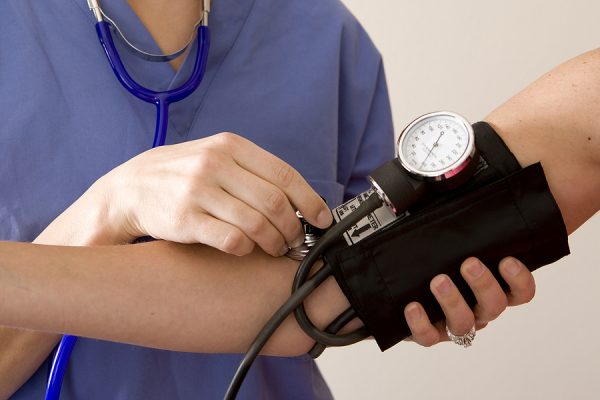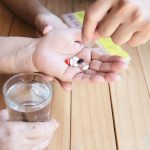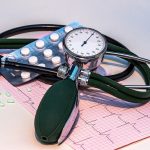By David Blyweiss, M.D., Advanced Natural Wellness
Here’s a number that will knock your socks off. About half of all U.S. adults – 116 million of us – have high blood pressure.
Good grief! That’s one out of every two people! It’s no wonder blood pressure meds are taken by so many people.
These medications can be a lifesaver when used properly. But they shouldn’t be used long-term as your primary source of blood pressure control. Just like most prescription meds, they come with their own set of problems.
For example, certain types of beta blockers like atenolol and metroprolol can worsen glycemic control, lower HDL and increase triglycerides. All of these events actually increase your risk of heart disease.
Diuretics reduce blood pressure by increasing the volume of water flushed out of the body. But they also flush out magnesium and potassium, and that’s not a good thing. A loss of magnesium and potassium will directly weaken your heart. Diuretics also have a bad effect on your cholesterol and triglyceride profiles.
The problem with angiotensin-converting enzyme (ACE) inhibitors and angiotensin receptor blockers (ARBs) is much more complicated. But in the end, these blood pressure meds could hasten kidney disease.
Let me explain.
High Blood Pressure and Your Kidneys
There are special cells in your kidneys that produce an enzyme called renin. It regulates blood pressure. But when you have constant high blood pressure, these cells undergo harmful changes, allowing them to get into the walls of the kidney’s blood vessels.
These changes also cause the build-up of smooth muscle cells that makes the vessels in the kidneys become thick and stiff. Once this occurs, blood can’t flow through the kidneys.
So you end up with extra wastes and fluids in your body that the kidneys can no longer remove. This, in turn, raises your blood pressure even further, placing you at great risk of further kidney damage and, ultimately, kidney failure.
You may be prescribed an ACE inhibitor or ARB to bring your blood pressure down and prevent all of this from happening.
Well it turns out that long-term use of these blood pressure meds can harden kidney vessels in very much the same way high blood pressure does! So in the long run these drugs actually promote kidney damage and reduced kidney function instead of preventing or halting kidney disease.
That’s just horrible news. And it’s a tragedy. Because the truth is, high blood pressure is manageable without the use of drugs.
Simple Changes can get you off the Meds
Just the other day I was talking to a young lady whose father had dangerously high blood pressure. It became so drastic that the man finally realized he had to do something about it. So he decided to give the DASH diet (Dietary Approaches to Stop Hypertension) a try.
After just one day of eating this mostly plant-based diet, it had a huge impact on his blood pressure. It dropped dramatically within hours.
This just goes to show you how little things can make a huge difference.
Even if you’re already on anti-hypertension medications, you can work with your doctor to get off of them with the right changes.
Drop those extra pounds. They contribute to high blood pressure, heart disease and diabetes. Each of these – including obesity – is associated with higher risk of kidney problems.
Get your exercise in. The more active you are, the more it will encourage blood flow. Your blood pressure will drop, your heart will pump more efficiently and your kidneys will function better. You’ll also start dropping excess pounds.
Switch to more of a plant-based diet. Choose natural, organic fruits and vegetables whenever you can and avoid processed, salty and sugary foods. Include plenty of potassium rich foods like bananas, spinach, beans, artichoke and sweet potatoes. The more variety you get, the faster you’ll lose weight and regain a healthy blood pressure.
Address the stress. Deep breathing exercises, meditation and getting a good night’s sleep are three things you can immediately start doing to help reduce your stress levels. I’ve seen many patients get great results with mind-body programs like yoga, tai chi or qi gong. Acupuncture and massage therapy are also great stress relievers.
For extra support try drinking beetroot juice or look for a nitric oxide enhancing supplement that has beetroot as a main ingredient.
Drinking just 250 ml of beetroot juice daily can lower your blood pressure by about 8/4 mmHg (8 points on the top number, 4 points on the bottom number). It will also reduce arterial stiffness and thickening of the arteries; and the nitric oxide boost is good for the kidneys.
Sources:
Sarafidis PA, Bakris GL. Do the metabolic effects of beta blockers make them leading or supporting antihypertensive agents in the treatment of hypertension? J Clin Hypertens (Greenwich). 2006 May;8(5):351-6; quiz 357-8.
Ryan MP. Magnesium and potassium-sparing diuretics. Magnesium. 1986;5(5-6):282-92.
Akhtar F, Khalid F, Wang H, Zhang D, Gong X. The Effect of Thiazide Diuretics on Blood Lipid Profile in Hypertensive Adults: A Meta-analysis of Randomized Controlled Trials. Cureus. 2018;10(5):e2651.
Watanabe H, Martini AG, Brown EA, Liang X, Medrano S, Goto S, Narita I, Arend LJ, Sequeira-Lopez MLS, Gomez RA. Inhibition of the renin-angiotensin system causes concentric hypertrophy of renal arterioles in mice and humans. JCI Insight. 2021 Dec 22;6(24):e154337.
Kapil V, Khambata RS, Robertson A, Caulfield MJ, Ahluwalia A. Dietary nitrate provides sustained blood pressure lowering in hypertensive patients: a randomized, phase 2, double-blind, placebo-controlled study. Hypertension. 2015 Feb;65(2):320-7.
Mount PF, Power DA. Nitric oxide in the kidney: functions and regulation of synthesis. Acta Physiol (Oxf). 2006 Aug;187(4):433-46.




